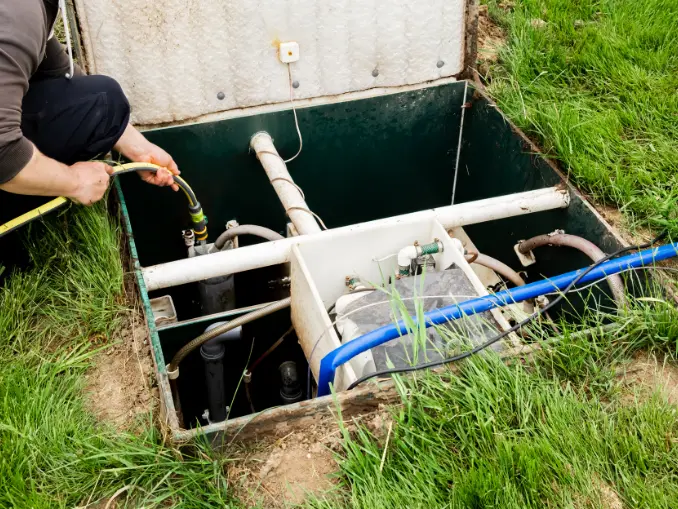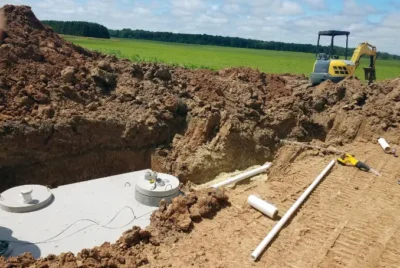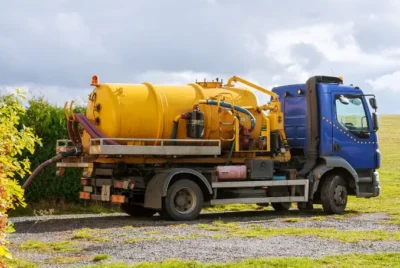Septic Tank Maintenance: Do They Need Regular Emptying?
Many homeowners often overlook the essential of regular septic tank emptying, unaware of the potential chaos it can cause. Picture a peaceful countryside home suddenly disrupted by a foul odor signaling a full septic tank.
Neglecting this basic maintenance task can lead to costly repairs and discomfort. Understanding the necessity of regular septic tank care is crucial for maintaining a healthy and hassle-free household.
Do You Need to Empty Septic Tanks?
Septic tanks require regular emptying to function effectively. This essential maintenance task, often referred to as “pumping,” prevents the buildup of solids in the tank, which can lead to system blockages, overflows, and environmental contamination.
How Often Should You Empty Septic Tanks?
Septic tanks are typically emptied every three to five years. Still, the exact frequency can vary based on the size of the tank, the number of people living in the home, and the volume of wastewater and solids being introduced into the system.
Moreover, households with high water usage or larger families might need to pump their tanks more frequently to prevent system overload and ensure efficient operation.
We also advise for homeowners to have their septic systems inspected annually by professionals to determine if pumping is necessary and to identify any potential issues before they become serious problems.
Read also: What is a Septic Tank? Purpose, Maintenance, and Functionality
Common Signs of A Full Septic Tank
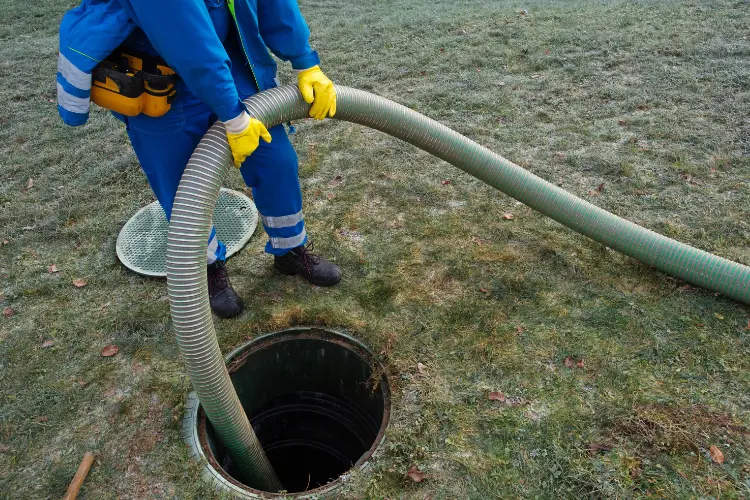
Pooling Water
If you notice water pooling in your yard, especially around the drain field area, this can be a sign that the septic tank is overflowing. When the tank is full, solid waste can clog the draining process, causing water to surface on your lawn.
Sewer Backup
One of the most alarming signs is sewage backing up into your home. This usually occurs in the lowest drains first. If you see any sewage coming up through your drains, it’s also a clear indicator that your septic tank needs immediate attention.
Well Water has High Nitrate Content
If tests show that the nitrate content in your well water is higher than usual, it could indicate that your septic system is leaching into your water supply, which can happen if the tank is full or failing.
Slow Drains
While slow drains can be caused by blockages in the pipes, if you notice that all the drains in your home are slow, including sinks, showers, and toilets, it could mean your septic tank is full.
Bad Odours
An unmistakable sign of a full septic tank is the presence of foul odours outside your home, particularly around the septic tank or drain field area. This smell is usually a result of overflowing or backed-up waste.
An Overly Healthy Lawn
If the grass over your septic tank is noticeably greener or lusher than the rest of your yard, it could be a sign that it’s receiving extra fertilization from a leaking or overflowing tank.
Gurgling Pipes
Hearing gurgling sounds from your plumbing system can indicate a full septic tank. These noises occur because the wastewater is struggling to flow through the system properly.
Trouble Flushing
If your toilets are not flushing correctly or if you need to flush multiple times to clear the bowl.
What Happens If You Did Not Pump Or Empty Your Septic Tank?
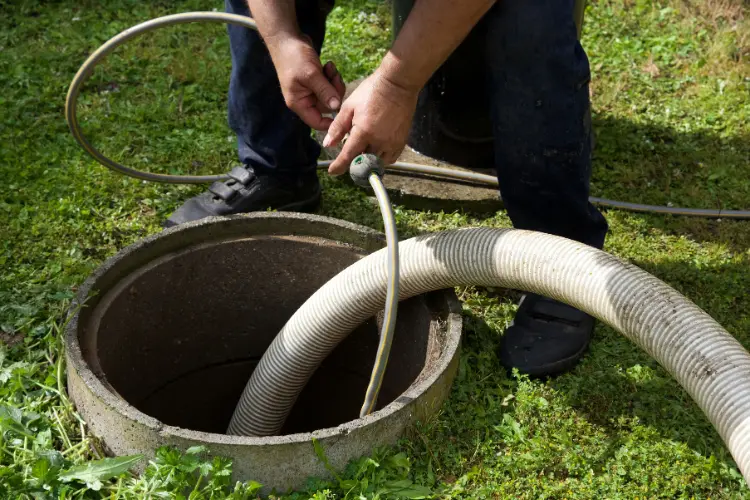
System Blockages and Backups
One of the immediate consequences of not pumping a septic tank is the accumulation of solids within the tank. These blockages prevent wastewater from flowing smoothly through the system, causing it to back up into the household. This can result in sewage spilling into bathrooms, kitchens, and yards.
Drainfield Failure
The drainfield is an essential septic system for removing contaminants from the liquid exiting the tank. An overloaded septic tank can send solids and excess wastewater into the drainfield, clogging it and rendering it unable to properly process sewage.
Environmental Contamination
An inadequately maintained septic tank can lead to the leakage of harmful pollutants into the surrounding environment.
Nitrates, phosphates, and harmful bacteria and viruses can also seep into groundwater, streams, lakes, and coastal waters, posing serious risks to wildlife, aquatic life, and human health.
Increased Repair and Replacement Costs
Regular septic tank pumping is a preventative measure that helps avoid significant damage to the septic system. When maintenance is ignored, the costs of repairs or a complete system replacement can be exponentially higher than the expense of routine pumping. A new septic system installation may be required in severe cases, representing a substantial financial investment.
Final Thoughts
Regular septic tank maintenance, particularly pumping, is not optional; it’s a necessity for the efficient and safe operation of a septic system. Homeowners must remain vigilant for signs that their tank needs emptying and adhere to recommended maintenance schedules.
By doing so, they can protect their property, the environment, and public health, while ensuring the smooth operation of their wastewater treatment system.
Lastly, engaging with professionals for periodic inspections and maintenance is the best strategy to prevent issues associated with neglected septic systems.

